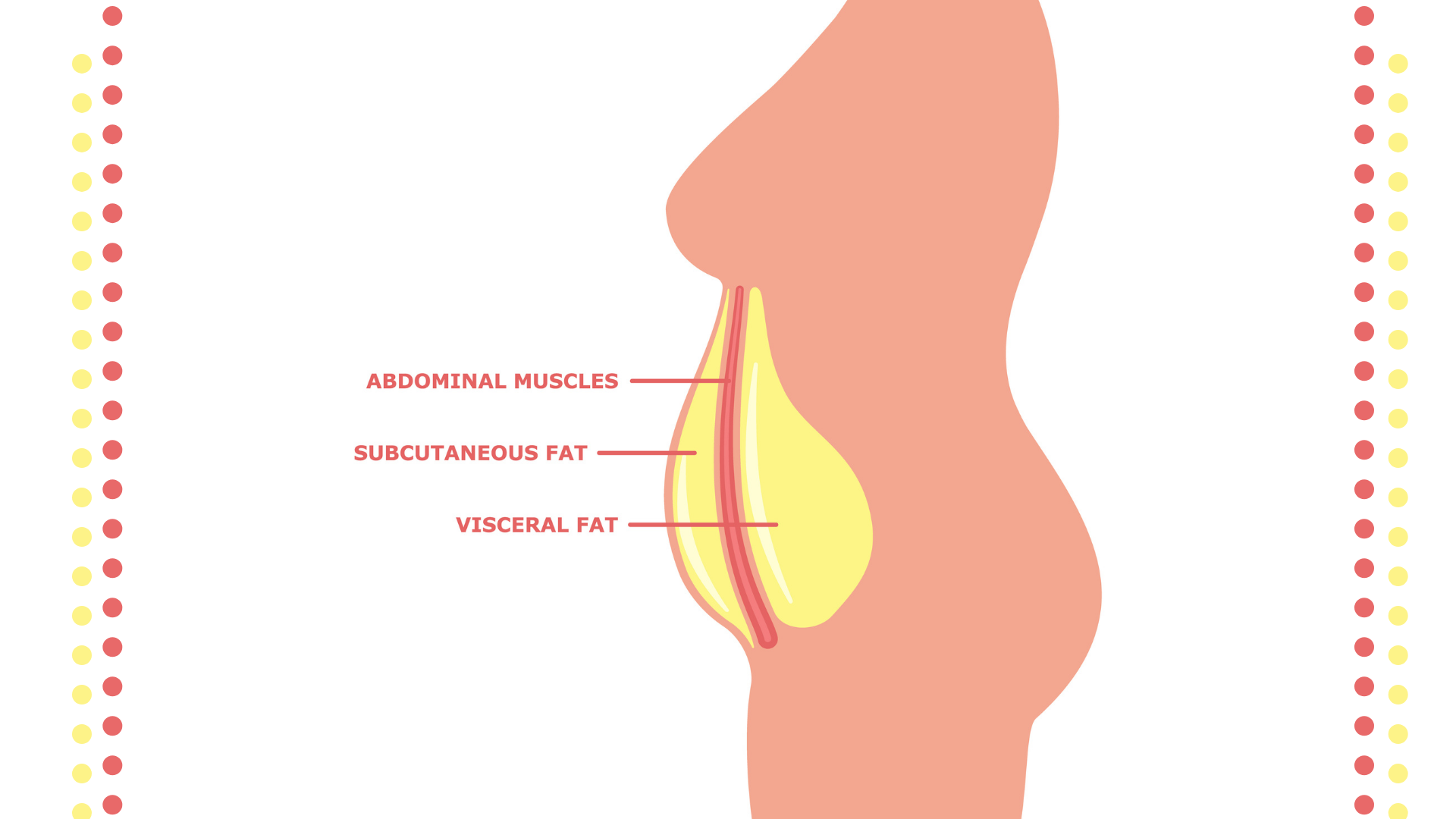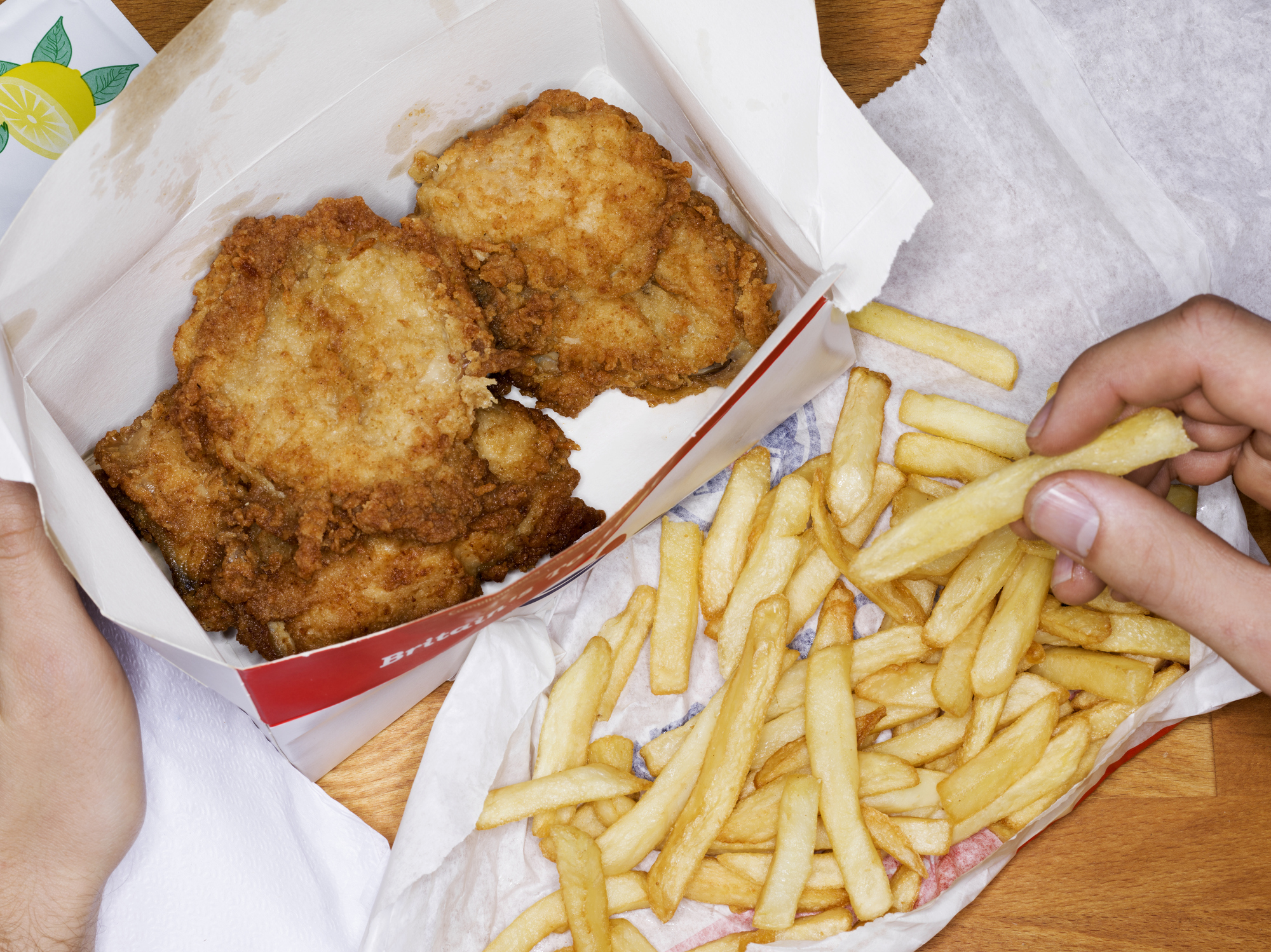What is skinny fat? Causes, risks and how to fix it
'Skinny fat' refers to someone who is outwardly fit but who has dangerous levels of internal fat


We delve into what it means to be 'skinny fat' - and ask the experts about the implications of this body type.
It's a common misconception that weight gain and a higher BMI mean you are unhealthy. Yet how you appear on the outside is not always fully reflective of what's going on internally. As the fitness term 'skinny fat' suggests - people who may look outwardly fit and toned can still be unhealthy. So it’s important to be aware of it.
"Even though the words skinny or fat should never be used to describe appearance, this collective term is actually scientifically legitimate believe it or not," fitness coach Georgie Spurling tells us. "It is when a person has relatively low muscle mass, and therefore a higher fat percentage, even though they may come across as pretty lean. This is proof that health comes from the inside out."
Of course, there are things you can do to reverse this. Following a healthy diet, eating fat-burning foods, and regular exercise to burn fat and boost muscle.
What is skinny fat?
In simple terms, 'skinny fat' refers to someone who looks fit and healthy from the outside, but who is actually carrying excess visceral fat internally.
These individuals usually have a normal BMI for their height and can even be athletic-looking. Hence being both ‘skinny’ and ‘fat’. But the reality is that this hidden belly fat can lead to some serious health problems.
The medical term for this is Metabolically Obese Normal Weight (MONW). Which, in our opinion, sounds a thousand times better and a lot less body shame-y than 'skinny fat'.
Parenting advice, hot topics, best buys and family finance tips delivered straight to your inbox.
David Wiener, a training and nutrition specialist breaks it down. He told us: "Visceral fat, or 'skinny fat' is the fat which surrounds our internal organs, not visible from the outside.
"The role of visceral fat is to provide protective padding and to be a reserve of fat, which can be oxidised to meet the energy needs of the body. In obesity literature ‘visceral fat’ is referred to as excessive fat around the digestive organs (intra-abdominal fat), e.g. the stomach, liver, gallbladder, pancreas, intestines and kidneys."
He clarifies that some fat around these organs is to be expected in small quantities. But when there’s an excess amount of it, that’s when it can lead to problems.
There are a number of factors that can contribute to a person appearing 'skinny fat'. From a lack of muscle to lifestyle choices - our experts share the need-to-know information.

What causes people to appear skinny fat?
1. Excess belly fat
Those that are carrying a few extra pounds around the middle may be at a higher risk of being skinny fat too.
"An easy way to measure visceral fat levels can be found by looking at your belly and waist size," David tells us. "If it’s protruding, you likely have a store of visceral fat."
The training specialist adds that a good way to assess if you have surplus visceral fat is calculating your waist to hip ratio: "To measure this, you divide your waist measurement by your hip measurement, and for men, a waist to hip ratio of above 1 is high. Anything below 0.95 puts you at a lower risk of disease. For women, a waist to hip ratio of above 0.85 is high. Anything below 0.8 puts you at a lower risk of disease.
"To get an accurate measurement of your visceral fat levels, you’d need a costly CT scan," David adds. But the above will give you a good indicator.
He also suggests making use of body composition monitors found at nationwide gyms, which can give you an accurate reading. So it might be worth asking next time you visit.
2. Low muscle mass
"Quite simply muscle burns fat, so increasing your muscle mass is vital not only for aesthetics but to improve energy, posture, circulation, fat burning, and more," says fitness trainer Georgie. "You can do this with exercises such as pilates, low impact/ HIIT workouts such as resistance training, and yoga.
3. Poor eating and drinking habits
It's not exactly news to most that what you eat plays a vital role in bodily functions. But according to Georgie, people who are 'skinny fat' are often not eating enough to gain muscle.
"We all know protein is key for maintenance and hypertrophy (production of muscle cells), so make sure you're on top of that," she says, promoting high-protein foods. "Alcohol can play a huge role in slowing down results as well. I know many of us may have regularly welcomed a few drinks over the past couple of years, but reducing or even putting a stop to drinking alcohol completely will in turn help you reduce inflammation and help your muscle recover quicker."
On the other hand, certain foods can also encourage a build up of visceral fat. Too many refined carbohydrates and trans fats (found in fast food and some meat and dairy) will encourage this. As will eating too much sugar.

4. Over-training
Over-training can also be a contributing factor to skinny fat, says Georgie.
"If you're doing a lot of high-intensity style training and not eating enough, what this does is burn muscle, so you end up looking less defined," she tells us. "It is always about finding that balance that's right for you."
5. Feeling stressed
A study released in November 2021 found that increased stress and shame can put you at higher risk of developing visceral fat.
"We know that stress may lead to weight gain and, specifically, to higher visceral fat," says Natalie Keirns, M.S., lead author of the study. "Visceral adiposity is the type of fat that is more closely related to cardiovascular disease (CVD) risk. Shame, specifically as an emotion, is related to human stress response. When we feel shame, our production of cortisol increases, which can lead to the accumulation of visceral fat."
6. Genetics
The body shape you have and inherit can affect whether you'll be 'skinny fat' or not.
"We are genetically dispositioned to have a 'body type' and although you can change this to some extent, you were born this way," says Georgie, who goes into this further below. "Embrace this and focus on inner health with nutritious food and an exercise regime that works for you."
What are the risks of being skinny fat?
- Diabetes
- Heart disease
- Certain types of cancer
- Alzheimer's and Dementia
"There are numerous health risks associated with carrying excess visceral fat," says David. "These include an increased risk of heart attacks, heart disease, Type 2 diabetes, raised blood pressure, strokes and some forms of cancer."
He's not wrong either, as a 2019 study concluded that people with more visceral fat were about 44% more likely to develop cancer and heart disease.
"There is also evidence to suggest high levels of visceral fat can be linked to Alzheimer’s disease and insulin resistance," he adds.
Findings from a South Korean study found that high levels of visceral fat (not subcutaneous fat) is associated with a reduced cortical thickness in the brains of elderly people. And this is important because a smaller cortical thickness can speed up your the early stages of dementia (says one Singapore study).
Further research suggests that visceral fat puts extra pressure on organs and can inflame body tissues. This in turn is what greatens the risk of you developing these diseases.
Can you fix skinny fat with diet changes?
The good news is that you can fix skinny fat with diet changes.
According to David, diet and lifestyle are the two biggest changes you can make to dramatically reduce visceral fat levels.
He recommends:
- A healthier diet, filled with fruit and veg
- Less processed foods
- Reducing refined carbs
- Reducing refined sugar
"Cheeses, avocados, seafood, lean meats, and poultry along with low carbohydrate vegetables such as kale and broccoli, are the perfect foods to consume," David tells us. Good fats and fat-burning foods to incorporate into your diet include good for you greek yogurt, eggs and spices like cinnamon.

Scientists at the University of Michigan found that cinnamaldehyde – an essential oil present in cinnamon – can help burn fat. Much like capsaicin in chilli, this oil activates thermogenesis. This is the metabolism process where heat helpfully burns calories.
A University of Tennessee study also prescribes calcium rich food to fight the fat. Researchers found that calcium controls how fat is processed and stored in the body. And that the more calcium in a fat cell, the more fat that cell will burn.
"If you’re serious about reducing your levels of visceral fat, it’s important to look at the amount of sugar in your diet," adds David. "Aside from obvious sources of sugar, seek out hidden sugars in heavily processed foods and eliminate them from your diet, opting to cook from fresh where possible.
A diet high in sugar can cause a build-up of fructose in the body, which can get turned into fat by the liver, potentially increasing visceral fat storage."
Can you get rid of skinny fat with exercise?
In a nutshell - yes you can get rid of skinny fat with exercise. Georgie in particular advocates an activity you like doing - and one that helps build muscle.
"An exercise you enjoy equals exercise you're going to stick to," she explains. "And ultimately that's the most important thing. Resistance training whether it's bodyweight training or weight training is the way to go, build that muscle up. Make sure it's effective training, you don't need to spend hours, just get those muscles working hard."
Freeletics specialist David agrees that for optimum results try "a mix of cardiovascular exercise and strength training".
Indeed researchers of one Belgian study stated that "aerobic training of moderate or high intensity has the highest potential to reduce visceral adipose tissue" in overweight males and females.

Is appearing skinny fat genetic?
Appearing skinny fat can be influenced by one's genetics, but it's not the sole reason for having excess visceral fat. Some individuals are genetically more likely to have a higher amount of body fat and less muscle compared to others. And indeed one University of Cambridge study proves just that.
"This research shows for the first time that healthy thin people are generally thin because they have a lower burden of genes that increases a person's chances of being overweight," says lead researcher Prof Sadaf Farooqi. "It's not because they are morally superior, as some people like to suggest." Georgie agrees that genes do play their part, but stresses that being skinny fat is also lifestyle based.
"Skinny fat can sometimes have nothing to do with genetics," she tells us. "Support all pillars of wellness from fitness, nutrition, mental health, sleep, and stress for best results. Wellness is holistic, if one pillar is broken, the others crumble. Listen to your body, work with the experts and dedicate yourself to change and you will be pleasantly surprised by the results."
Video of the Week:

Emily Stedman is the former Features Editor for GoodTo covering all things TV, entertainment, royal, lifestyle, health and wellbeing. Boasting an encyclopaedic knowledge on all things TV, celebrity and royals, career highlights include working at HELLO! Magazine and as a royal researcher to Diana biographer Andrew Morton on his book Meghan: A Hollywood Princess. In her spare time, Emily can be found eating her way around London, swimming at her local Lido or curled up on the sofa binging the next best Netflix show.